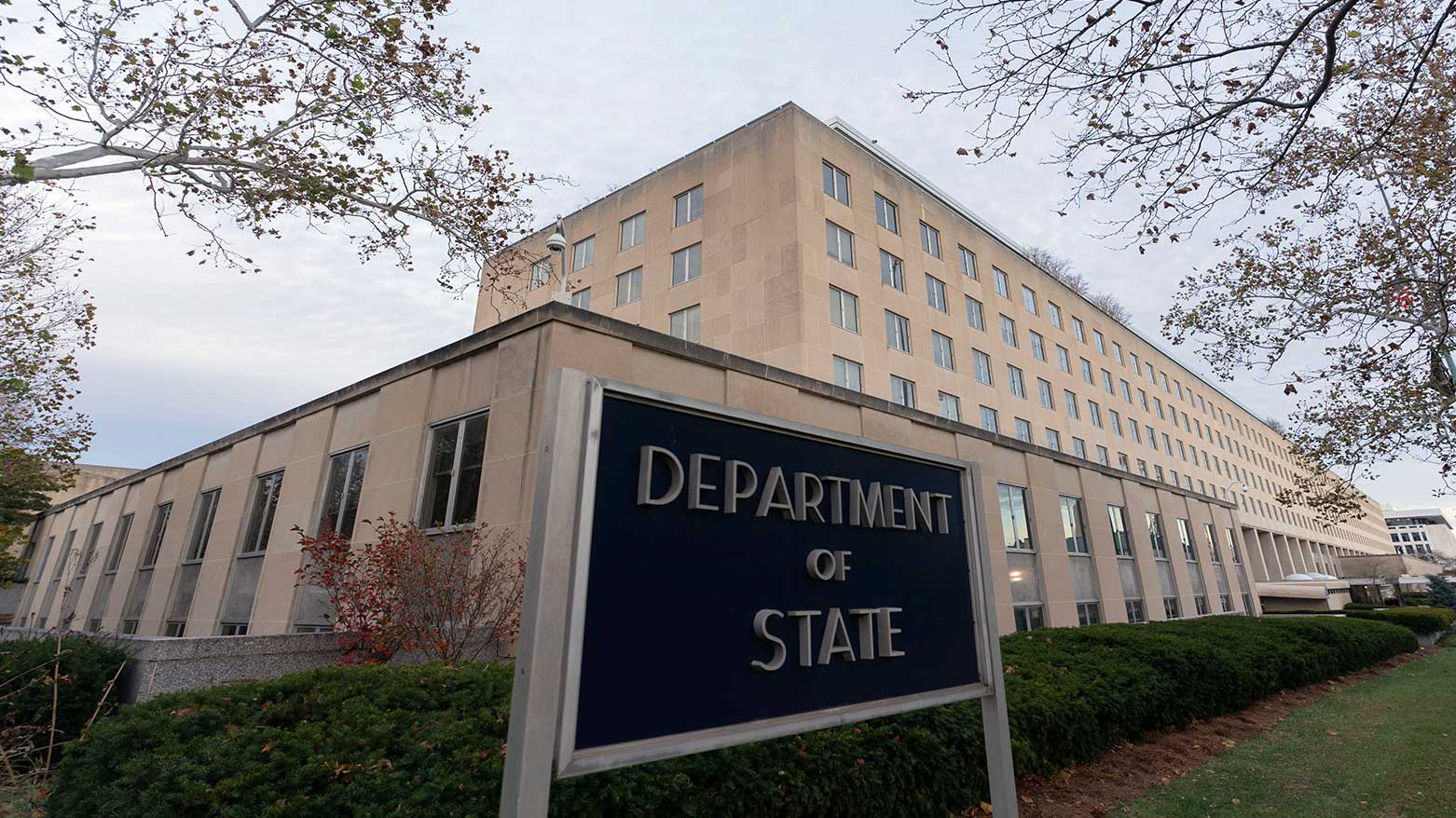Trump Administration Considers Shutting Down Nearly 30 Embassies, Including in Iraq, Amid Diplomatic Restructuring
Closure of U.S. Embassy in Baghdad Could Undermine Strategic Ties, Weaken Counterterrorism Efforts, and Diminish American Influence in Iraq

ERBIL (Kurdistan24) — The Trump administration is considering a sweeping overhaul of America’s diplomatic presence abroad, including the potential closure of nearly 30 overseas embassies and consulates—including a downsizing of the U.S. diplomatic mission in Iraq—according to an internal State Department document obtained by CNN.
The document outlines the proposed shuttering of 10 embassies and 17 consulates, targeting a diverse array of locations across Europe, Africa, Asia, and the Caribbean. The embassies in Malta, Luxembourg, Lesotho, the Republic of Congo, the Central African Republic, and South Sudan are among those identified for potential closure. Additionally, five consulates in France, two in Germany, two in Bosnia and Herzegovina, and others in the United Kingdom, South Africa, and South Korea are also listed.
According to CNN, the internal document recommends that the responsibilities of these closed embassies be absorbed by nearby diplomatic missions, a move officials say could help reduce costs and streamline diplomatic operations.
This dramatic reshaping of the U.S. diplomatic landscape comes as part of a broader government efficiency push, reportedly influenced by the Elon Musk-backed Department of Government Efficiency, aimed at reducing the size and cost of the federal government. However, it remains unclear whether Secretary of State Marco Rubio has formally approved the recommendations.
The document also proposes "resizing" U.S. missions in Somalia and Iraq, two nations central to American counterterrorism strategy. Although not detailed in the CNN report, resizing typically involves reducing personnel, budget, or the scope of operations.
A State Department spokesperson, Tammy Bruce, declined to confirm or deny the document's authenticity or the plans it describes, urging reporters to refer to the White House for official comment. “The kinds of numbers and what we tend to see is reporting that is early or wrong, based on leaked documents from somewhere unknown,” she told CNN.
CNN further noted that the administration has so far nominated ambassadors for only two of the embassies on the potential closure list — Malta and Luxembourg — underscoring the tentative nature of the proposal.
Embassies and consulates play a critical role in visa services, citizen assistance, intelligence gathering, and maintaining bilateral ties. U.S. officials have often emphasized the importance of these diplomatic posts, especially amid growing global competition with countries like China.
Despite their relatively small staffing, most consulates are considered strategic assets, not just administrative outposts. Their removal, some experts warn, could reduce America’s reach and responsiveness in several regions, though proponents argue it is a necessary step toward modernization and fiscal responsibility.
The document reportedly emerged from the State Department’s Undersecretary for Management, evaluating each post based on regional bureau feedback, cost-efficiency, consular workload, facility conditions, and security ratings.
Additionally, the internal analysis suggests a reconfiguration of major missions like those in Japan and Canada, consolidating operations into specialized support hubs. It also proposes more "light footprint" FLEX-style posts, limited in scope and staff, and recommends "dual-hatted leadership" for missions operating across multiple international organizations such as the OECD and UNESCO in Paris.
If implemented, this initiative would represent one of the most significant reductions in U.S. diplomatic presence in decades, raising both hopes for bureaucratic efficiency and concerns over America’s global influence.
What Would It Mean for Iraq and U.S.-Iraq Relations?
Should the United States decide to close or significantly downsize its embassy in Baghdad, it would mark a seismic shift in U.S.-Iraq relations. The embassy, one of the largest American diplomatic compounds in the world, serves as a strategic hub for political, military, and economic cooperation between the two nations. Its closure would likely weaken direct diplomatic engagement, reduce support for democratic governance and stabilization programs, and signal a retreat of U.S. influence at a time when regional powers — notably Iran — are vying for greater sway in Iraq. Moreover, it could strain counterterrorism coordination, complicate assistance to U.S. citizens and Iraqi partners, and leave a vacuum in a country that remains pivotal to broader Middle East security dynamics.

